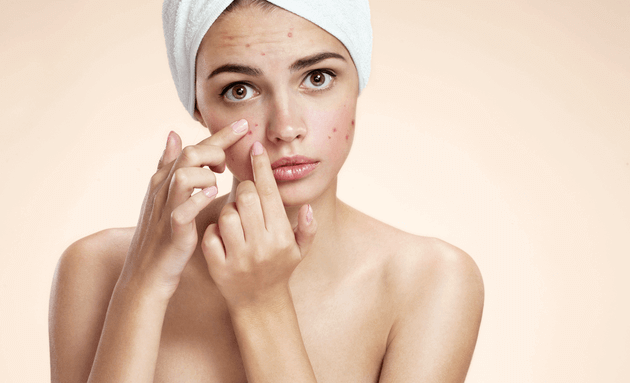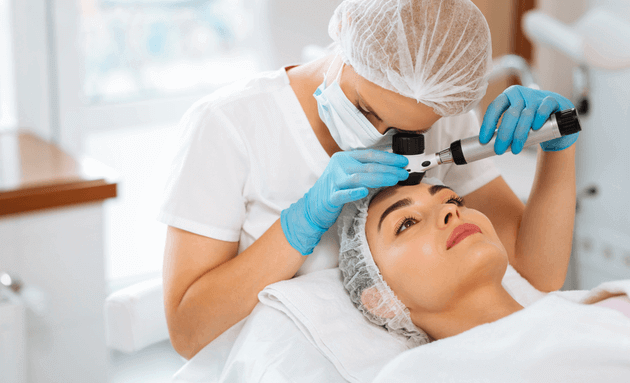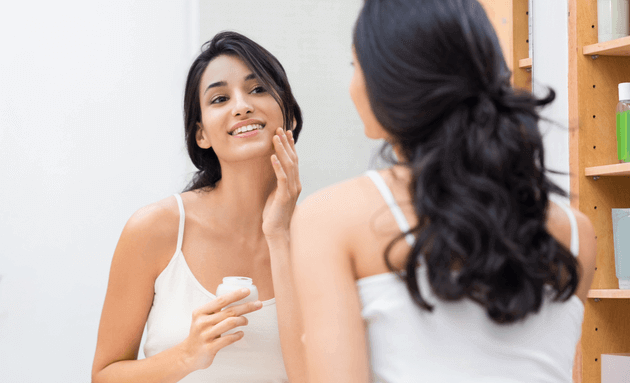Acne: What Are The Causes and Treatment of Teenage Acne

Chronic acne is an inflammatory skin condition and can affect a person’s self-esteem and mood adversely. It is one of the most common skin disorders in the world and is estimated to affect more than 23 million Indians by the end of 2026.
Most teenagers get acne once in their lives. As a matter of fact, this condition is so prolific that it’s considered to be a normal side effect of puberty.
What Causes Acne in Teens?

Acne occurs when an oily substance called sebum clogs the pores on the skin, giving rise to pimples on the face, neck, back, chest, and shoulders..
Acne vulgaris is the most commonly diagnosed form of acne while acne rosacea, acne cosmetica, acne fulminans, and acne mechanica are some lesser-known forms of this skin disorder.
The four main factors that can cause acne are:
- Excess oil, or sebum production
- Hair follicles clogged by oil and dead skin cells
- Bacteria
- Excess activity of the hormone androgen, that causes excessive oil production, changes in skill cell activity, and inflammation

Factors that may aggravate Acne are:
- Hormonal changes during puberty. Androgen can cause sebaceous glands to enlarge and produce extra sebum, leading to the formation of acne.
- Dietary habits. Diets that include foods like skimmed milk and carb-rich products like bread and chips can worsen the symptoms of acne.
- Excessive stress. A stress-related hormone called CRH (corticotropin-releasing hormone) can bind to skin receptors and drive the sebum level up which can cause acne breakouts.
How Can You Treat Acne?

A dermatologist will help you to control your acne, avoid visible damage to your skin, and make the marks less visible. If over-the-counter acne products have not helped you, your doctor is likely to prescribe stronger medications.
Acne medications help reduce oil production in your skin and fight bacterial infections. They can take up to 6-8 weeks to show results.
Your acne treatment regimen will depend on the age and severity of your acne breakouts. Often, you may be asked to take a combination of an oral and topical medication especially when it’s a particularly serious acne outbreak.
Oral Medication
For moderate to severe acne, you may be prescribed antibiotics that will help reduce bacterial infection and fight inflammation. Oral antibiotics must be used for the shortest duration possible to avoid any antibiotic resistance. It may have some side effects such as an upset stomach or dizziness and may increase your skin’s sensitivity to the sun.
Take Action Against Acne at Home

A basic skincare routine can go a long way in your efforts to manage the spread of Acne.
- Wash affected areas with a gentle cleanser or a bar of mild soap and warm water. If you are susceptible to acne breakouts along your hairline, wash your hair every day with a gentle shampoo. Avoid products like harsh facial scrubs, astringents, and masks.
- Some acne medicines can have side effects like redness, dryness, and scaling initially, consult your doctor if you fail to see any improvement after a few weeks.
- Avoid oil-based cosmetics, sunscreens, and hairstyling products. Do not try to conceal your acne or pimple with makeup products. Use products that are water-based or non-comedogenic.
- Avoid excessive exposure to the sun. For some, sun rays can worsen acne. Use a non-oily moisturiser with sunscreen before stepping out.
- Avoid friction on your skin with everyday objects such as helmets, tight straps, and backpacks.
- Refrain from scratching or touching the affected area to avoid infection and scarring
- Shower after any physical exercise. Sweat and oil on your skin can lead to breakouts.
- Avoid exerting excess stress on your mind and body. Practice yoga and meditation to help calm your mind.
- Include fresh fruits and vegetables in your diet and stay hydrated always.
Teenagers with excessive acne breakouts can develop problems like poor body image and avoid social gatherings or sports activities that can expose their marks. However, helping with treatment and providing support can go a long way in helping teenagers deal with the problem.






